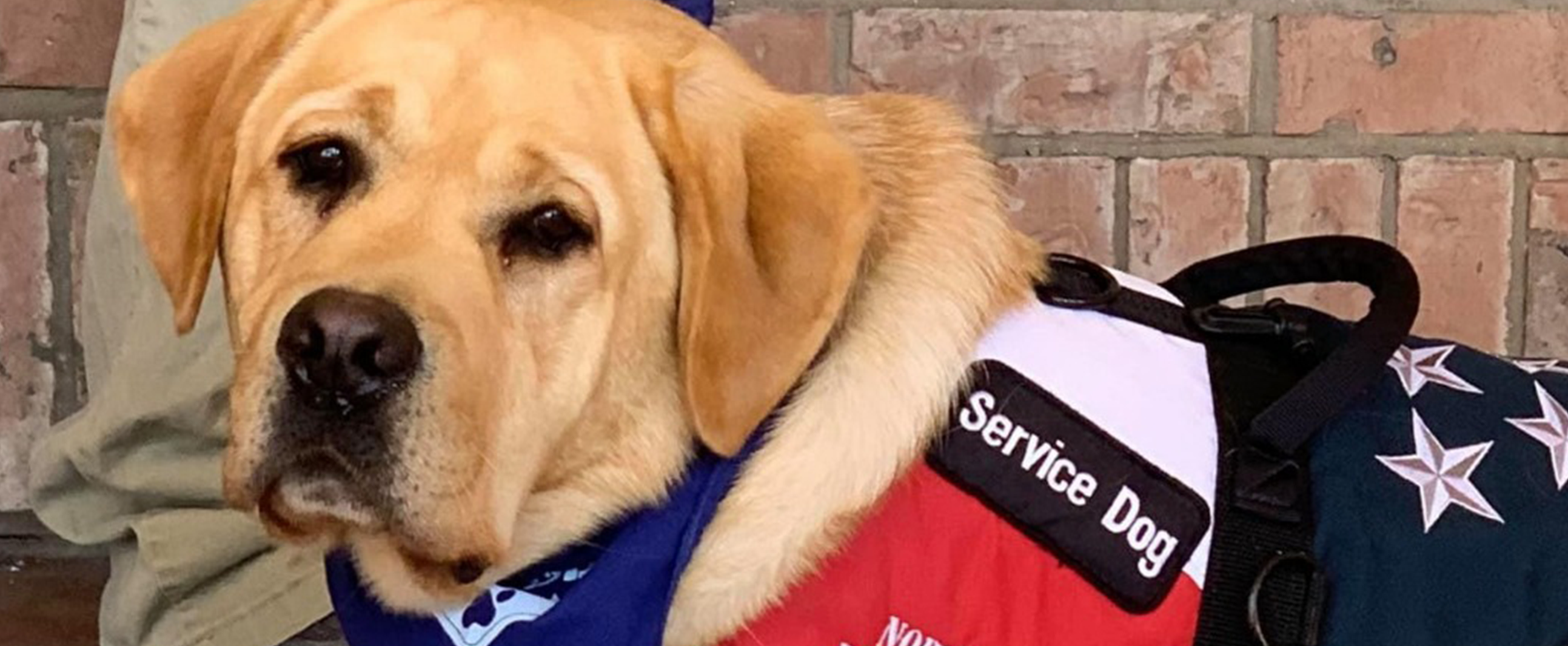Caring for Your PTSD Service Dog: 9 Tips
At Northwest Battle Buddies, we professionally train PTSD service dogs to provide life-changing support and interventions for Veterans. While our mission is to serve the American heroes who have sacrificed so much for us, we also make a lifetime commitment to the pups that go through our program. If you are a member of a Northwest Battle Buddies team, we know you’ll want to take care of your professionally trained service dog just as well as they take care of you. Here are 9 tips for keeping your dog physically fit and mentally balanced throughout its lifetime.
9 Ways to Care for Your PTSD Service Dog
1. Don’t neglect their teeth
As with humans, the teeth provide a window into overall health, and neglecting them can lead to bigger problems down the line. It’s best to provide preventative dental care by brushing your dog’s teeth from the very beginning, and there are also dental bones and other tools you can use to keep your dog’s mouth healthy. Schedule regular checkups and cleaning to prevent infection, pain, and other dental hygiene-related issues.
2. Stay up on training
Well-trained dogs are happy, balanced dogs. Even though working with Northwest Battle Buddies will set you up for success in this area, it’s important to work with your dog daily and stay current on the recertification process. For a dog with a strong leader, every day is a training day.
3. Provide regular grooming
Maintaining your dog’s coat, nails, and general cleanliness contributes to their good health as well as the health of the humans that handle them. Grooming will also help you detect ticks, fleas, rashes, or other potential health problems related to your dog’s skin, fur, ears, and paws. Whether you groom your dog yourself or use a professional groomer is up to you: just be sure to do it.
4. Pay attention to nutrition
A dog’s diet is one of the most important contributors to their health and well-being. Some dogs have special nutrition needs; others may require monitoring to maintain a healthy weight. Work with your vet to make sure your dog is getting what they need. This may include special food, vitamins and/or supplements, and could change throughout their lifespan.
|
Life-changing dogs require extensive training & support Consider supporting the professional training of a service dog by donating to Northwest Battle Buddies. You’ll make a difference in the life of a Veteran battling PTSD by gifting them a professionally trained service dog. The impact is real, and life-changing. |
5. Exercise everyday
Getting enough exercise is essential for your dog's physical health and long life, and it’s also an important way to strengthen the human-owner relationship by reinforcing your role as the leader of the pack. While some dogs require more activity than others, all dogs will benefit from daily walks and exercise to keep them physically and mentally stable.
6. Make time to play
A service dog's life needs to be a balanced life. It is just as important to have personal play time with you as it is for them to have clear leadership while working as a service dog.
7. Manage the environment
While your professionally trained service dog may be better able than most animals to avoid getting into something that might hurt them, you’ll want to assess new environments and situations to make sure things are safe for your pup. This could mean making sure a fence is secure or putting away that dark chocolate on the counter before letting your dog off-leash. Not every environment is conducive to having an animal, so do your dog a favor and check it out first.
8. Schedule wellness visits
Even if your dog seems to be in superior health, schedule regular visits to the vet to stay up on vaccinations and catch any potential health issues that can be helped or handled before they get worse. Wellness visits are always a must: schedule them for every six months or so to stay on track.
9. Plan for the weather
A dog’s health can be seriously impacted by extreme weather, hot or cold, so it’s important to plan ahead. Never leave your PTSD service dog alone outside in extreme temperatures, and always ensure they have what they need (water, shade, paw balm, etc.) to avoid overheating or freezing under your care.
Want to know what it’s really like to raise a puppy to be a professionally trained service dog? Check out Koa’s Journey.

